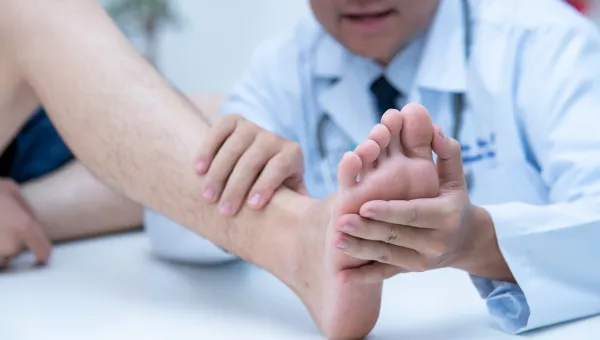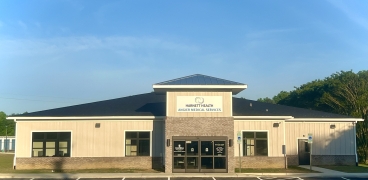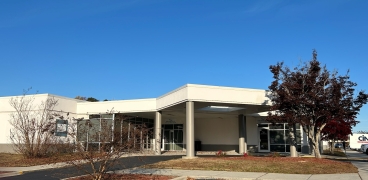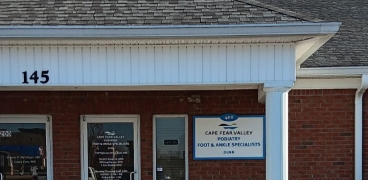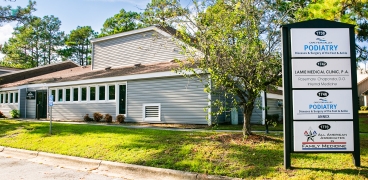Cape Fear Valley Health’s podiatric surgeons offer advanced treatment options, such as foot reconstruction, for complex foot conditions. All while providing education and options tailored to your lifestyle needs.
What is Foot Surgery?
Foot surgery refers to a set of surgical procedures aimed at correcting deformities, abnormalities, or injuries in the foot.
The goal is to restore the foot's normal function, alleviate pain, and improve its overall appearance.
Conditions addressed might include bunions, hammer toes, flat feet, and foot injuries due to trauma or conditions like arthritis.
For many patients, foot surgery offers significant benefits, including pain relief, improved mobility, and a better quality of life. When non-surgical treatments haven't provided relief, surgery can be a transformative option.
However, the decision to have surgery should be made after a thorough consultation with a podiatrist. It’s important to understand the potential risks, benefits, and long-term implications.
How Long Does It Take To Recover From Foot Surgery?
Recovery time from foot surgery varies depending on the specific procedure performed and your overall health.
Generally, initial recovery, where you can resume light activities, takes anywhere from a few weeks to a couple of months. Full recovery, including returning to high-impact activities or wearing regular shoes, might take several months.
Regular check-ins with your podiatrist and following your post-operative instructions can aid in a smoother recovery.
Am I a Candidate for Foot Surgery?
At Cape Fear Valley Health, foot surgery may be considered when:
- Chronic pain affects daily activities and hasn't responded to non-surgical treatments.
- There's a significant deformity in the foot, like such as bunions, hammer toes, or flat feet.
- Previous injuries or conditions, such as arthritis, have led to foot abnormalities.
- There are congenital deformities or conditions that progressively worsen over time.
Our Approach to Foot Surgery?
Our podiatrists believe in a patient-centric approach. Before recommending surgery, we exhaust all non-surgical treatments. If surgery is deemed necessary, we ensure it's tailored to your specific needs. We aim to use state-of-the-art techniques and technologies to maximize outcomes and minimize recovery time.
At Cape Fear Valley, you can expect:
- A thorough evaluation using a combination of medical history, examination, and imaging to get to the root of the issue.
- Exploration of nonsurgical treatments like physical therapy or custom orthotics first.
- A personalized treatment plan that takes your needs and goals into account.
- A partnership with your treatment team that makes sure you’re well-informed about your condition, treatment options, and what to expect.
- Holistic care that includes other departments like such as neurology, cardiology, endocrinology, and diagnostic imaging when needed.
- Support that doesn’t stop once you’ve had surgery. From wound care to guidance on resuming activities, we're with you every step of the way.
Is Foot Surgery Worth It?
For many patients, foot surgery offers significant benefits, including:
- Pain relief
- Improved mobility
- Better quality of life
When non-surgical treatments haven't provided relief, surgery can be a transformative option. However, the decision should be made after a thorough consultation with a podiatrist, understanding the potential risks, benefits, and long-term implications.
What to Expect With Foot Surgery
Pre-surgery consultation
Our podiatrists will conduct a thorough evaluation, including medical history, physical examination, and imaging, to determine the best surgical plan.
Procedure details
The specifics of the surgery will depend on the condition being treated. However, our emphasis is always on precision, safety, and ensuring optimal functional outcomes.
Outcome expectations
While foot reconstructive surgery aims to restore function and alleviate pain, it's essential to have realistic expectations. Our team will provide clarity on anticipated outcomes, potential risks, and long-term care.
Recovery
Post-operative care looks different for each patient. It might include immobilization with a cast or boot, physical therapy, and exercises to strengthen the foot and restore mobility. The recovery timeline varies based on the procedure but expect regular check-ins to monitor healing.
Continued care
Our commitment to your foot health doesn't end post-surgery. We offer guidance on foot care, shoe choices, and preventive measures to ensure lasting foot health.

